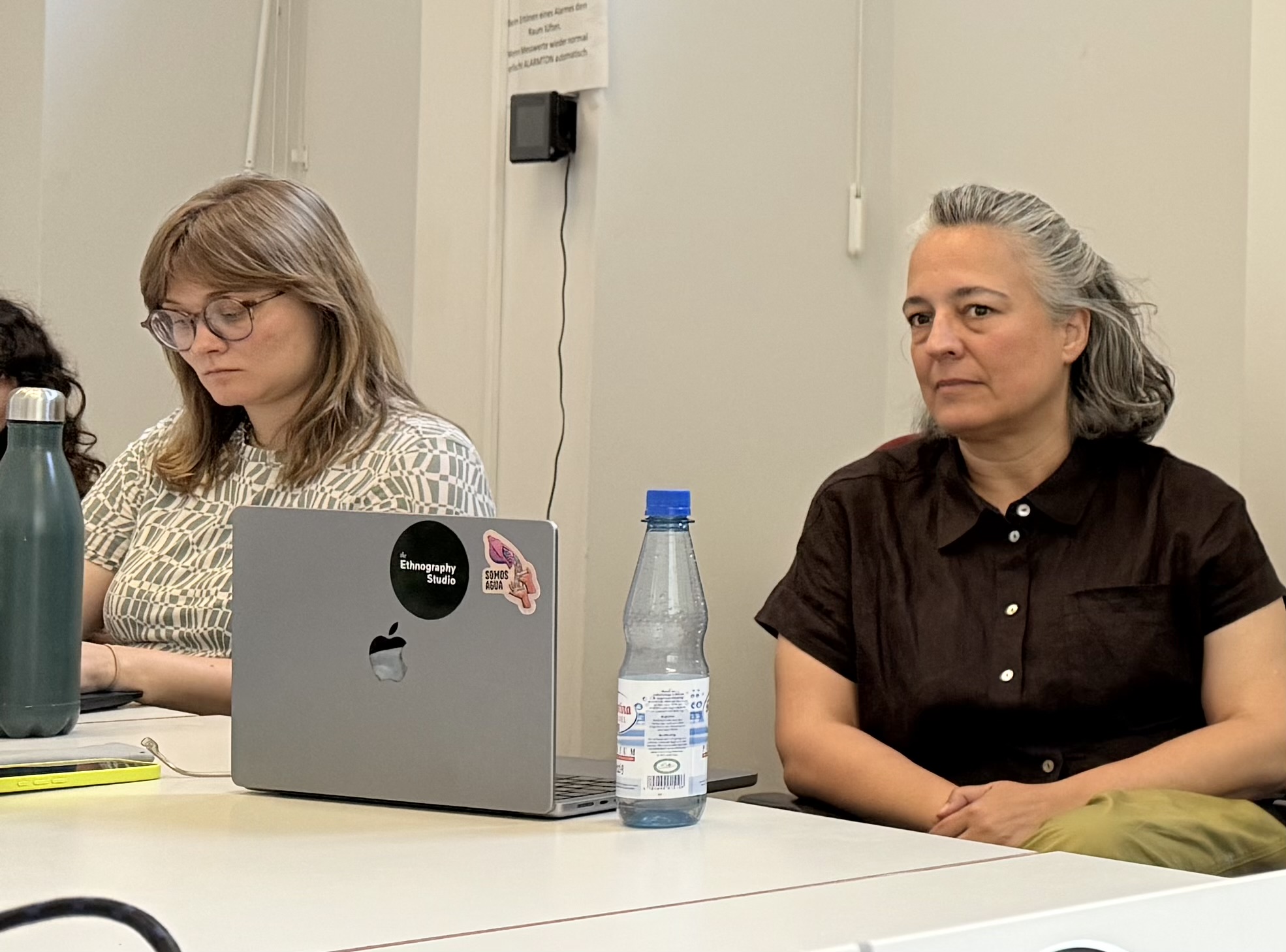In June, Prof. Dr. Andrea Ballestero visited the Research Training Group (RTG) and held a public lecture as well as a hands-on workshop for the doctoral students. The stay was part of a longer-term cooperation between the RTG and the University of Southern California (USC), as part of which Andrea also supported two of the associated members, Catharina Dietrich and Janine Hagemeister, as a mentoring scholar. The two PhD candidates currently work on the research project “Tracing Data Politics” coordinated by Prof. Dr. Martina Klausner and funded by the German Research Foundation (DFG). In a brief review, they share their experiences with the mentoring that also comprised a visit at the USC in Los Angeles in 2024.
Tracing Data Politics Abroad
During the Labs of the RTG and in the context of our dissertational projects on data politics we had repeatedly worked with concepts developed by Andrea Ballestero, especially her notion of the technolegal device, which had become a very helpful tool for our ethnographic thinking.
When Andrea agreed to take on a mentoring role for us, we were very thankful. Talking in person about our work with one of the scholars whose name we see so often in the references sections of papers we read, felt like a great opportunity. Soon after, we received additional good news: The mentoring agreement allowed the RTG to enable an exchange trip to Los Angeles. Thus, we were excited to prepare a joint travel to California together with Martina Klausner and Dženeta Hodžić (ISOE Frankfurt).
The two weeks we spent in Los Angeles were full with great events, new contacts, interesting opportunities and even some research encounters in the field of mobility.
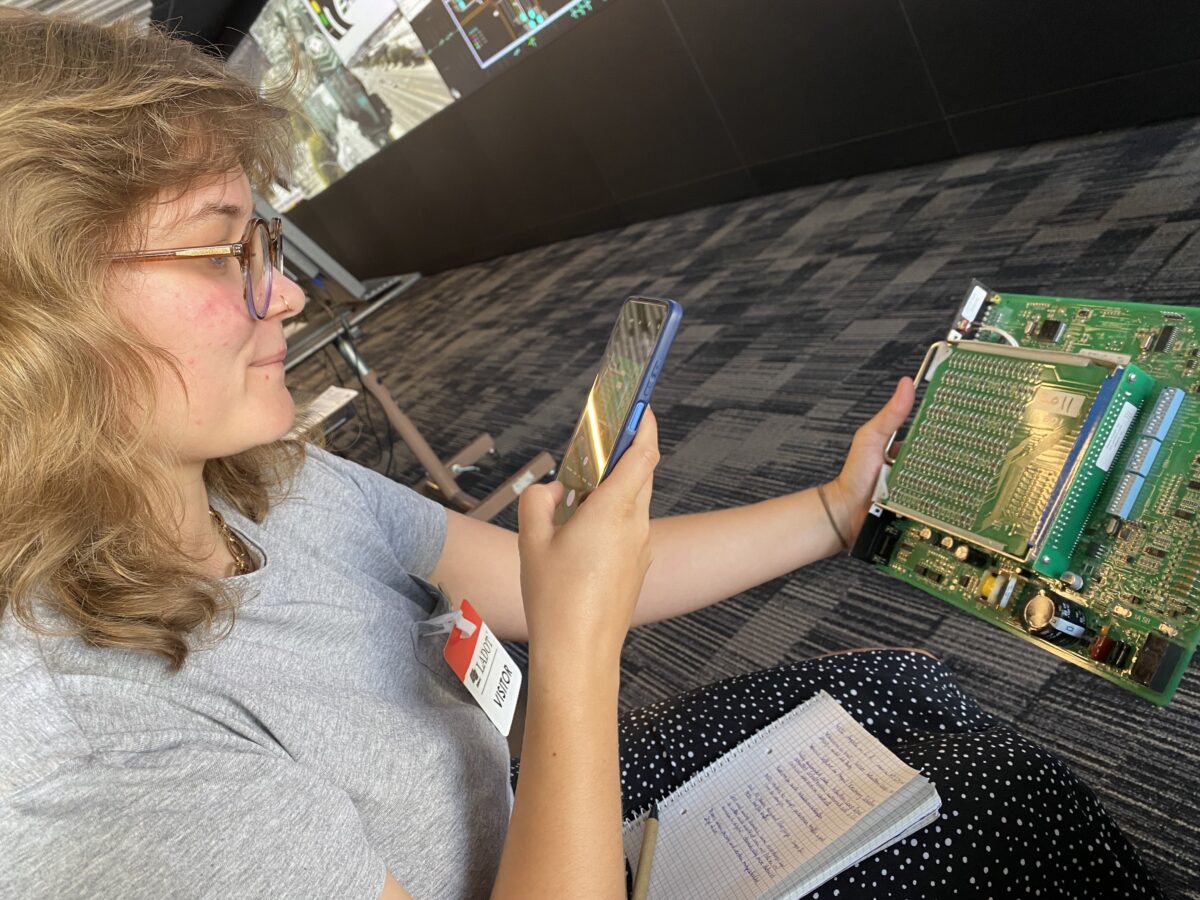
Andrea welcomed us warmly in the city and provided us with advice and a couple of propositions for spending our time. The city of angels with its beautiful beaches and vivid cultural scenes had multiple faces. To those of us who were in the US for the first time, it appeared to be a city of cars as well. And most strikingly, it seemed to be a city of tremendous inequality. According to our travel reading, it is also the city of quartz and a city with a strong affiliation to imaginations of disasters.
The first day made one thing crystal clear: there was a lot here for us to discover.
For the course of our stay, we had organized meet-ups with doctoral students and professors not only from USC, but also from UCI and UCLA, as well as two interviews with staff from the LADOT (City of Los Angeles Department of Transportation).
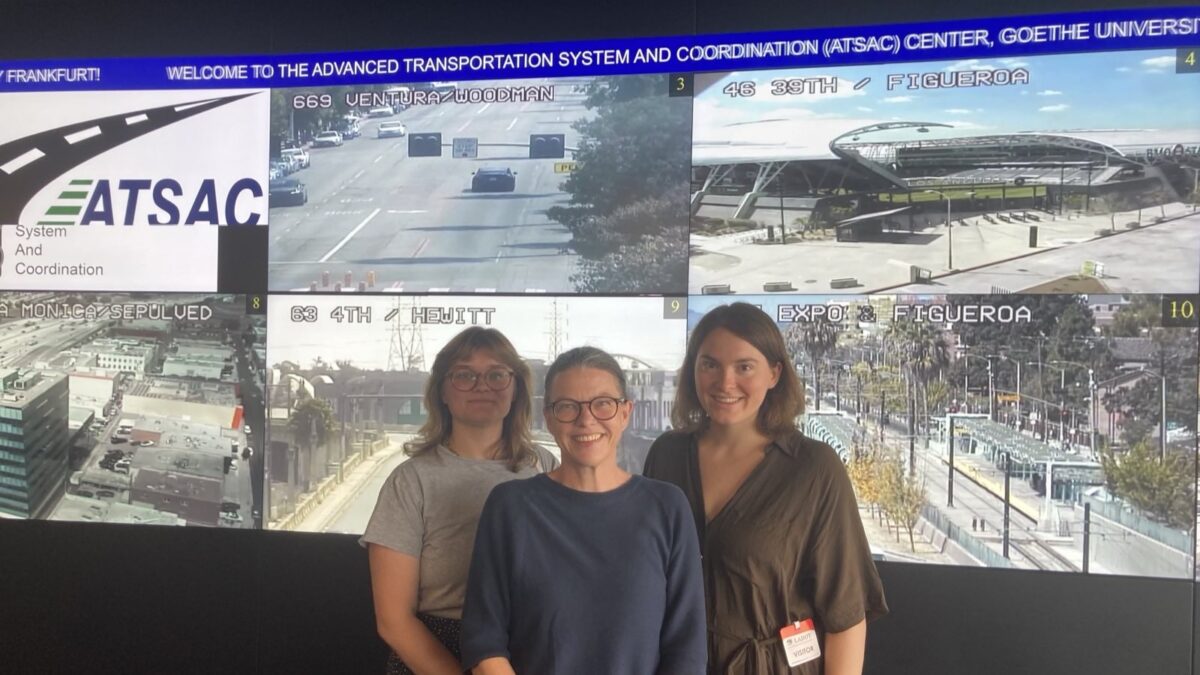
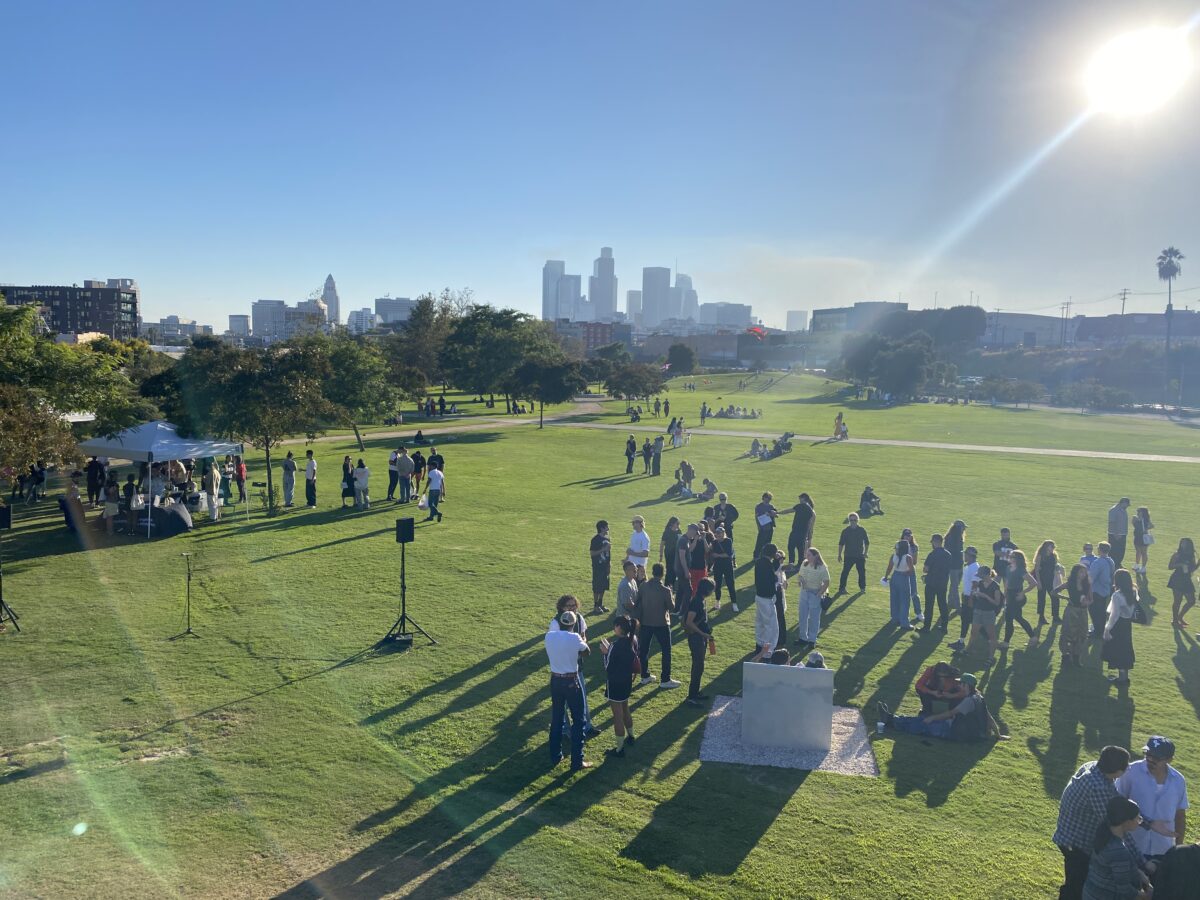
But the main focus was our exchange with Andrea. We joined one of her seminar sessions teaching Feminist STS and learned a lot. During multiple off-campus events, an art exhibition opening and a couple of restaurant visits, we had the chance to get to know Andrea and her work better and ask for her opinion on some thoughts and ideas.
The highlight of the two weeks in L.A. was for sure the Ethnography Studio Workshop which Andrea Ballestero and Martina Klausner had organized. Under the title „Missing Underappreciated Found“, PhD students and professors from 3 research projects presented their work and reflected on the often ambivalent relation we have with peculiar ethnographic devices that we find or produce. The chance to present reflections from our work with Frankfurt’s traffic model as well as our self-created digital mapping of Frankfurt’s datascape was great. The comments by AndreaBallestero and the discussants Kim Fortun and Peter Redfield were very enriching for the further development of our projects.
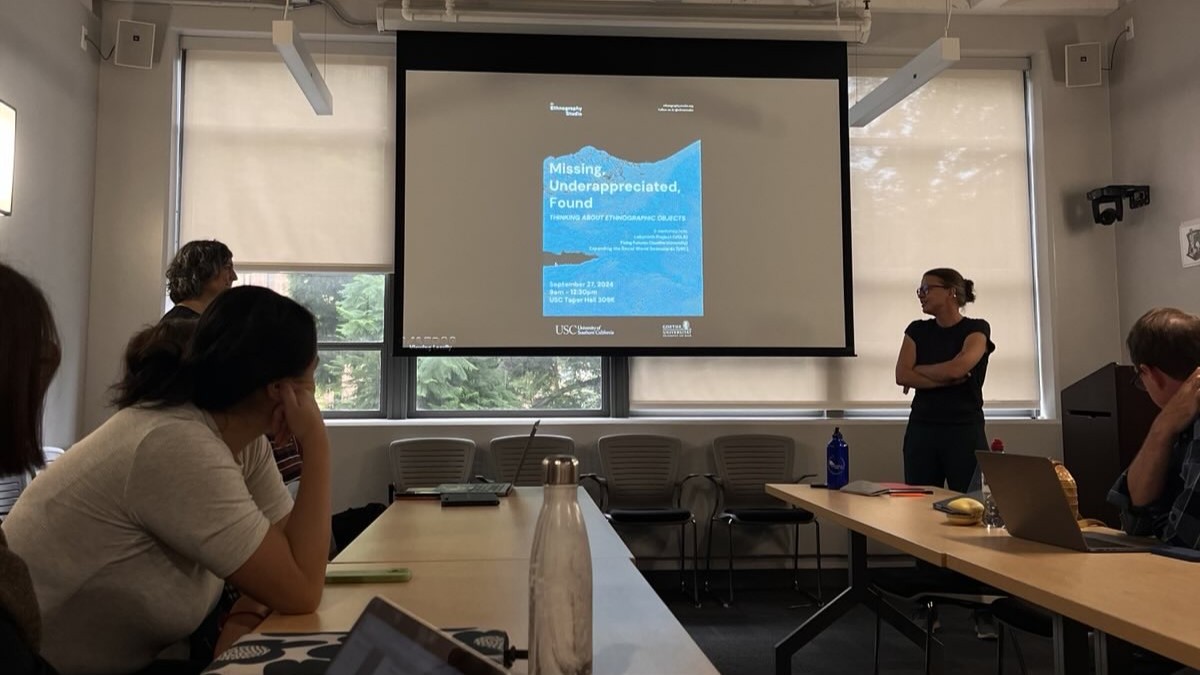
The two weeks passed quickly, but we brought a lot of new thoughts and relationships back with us.
An Anthropologist on a Visit
In June 2025 it was time to return the favor and welcome Andrea Ballestero at the Goethe University in Frankfurt. The week started with a public lecture under the title “An Anthropologist under the Surface”, in which Andrea introduced the audience to her work on aquifers in Costa Rica. Using the orientation concepts time, distance, and texture, she portrayed epistemic practices that revolve around something that can neither be observed, nor immersed in: aquifers. Andrea convincingly argued for seeing below the earth’s surface for more than just valuable resources, and hence disengage with a solely extractivist understanding of the underground. For our own case studies on data politics in Frankfurt’s mobility, this was a great inspiration to similarly acknowledge mobility as more than just the continued economic cycle of goods and people. Even though our field differs in many regards from Andrea’s, her analysis of remote sensing technologies as ways of “seeing from a distance” was fruitful for our engagement with mapping and modeling practices that produce techno-scientific knowledge as well.
We were able to continue the exchange on Thursday, when we participated in the restage of the hands-on workshop “Missing, Underappreciated, Found” that Andrea Ballestero and Martina Klausner jointly organized for the doctoral students of “Fixing Futures”. The setting was especially helpful, as the group was small enough to engage in deep fundamental conversations about methods and concepts at the heart of our research projects. Andrea took the time to comment on every PhD candidate’s presentation and a group discussion followed for each topic. For an inspiring end of the day, the group went to see the ongoing “Fixing Futures” exhibition, which the RTG curated in collaboration with the Museum Giersch.
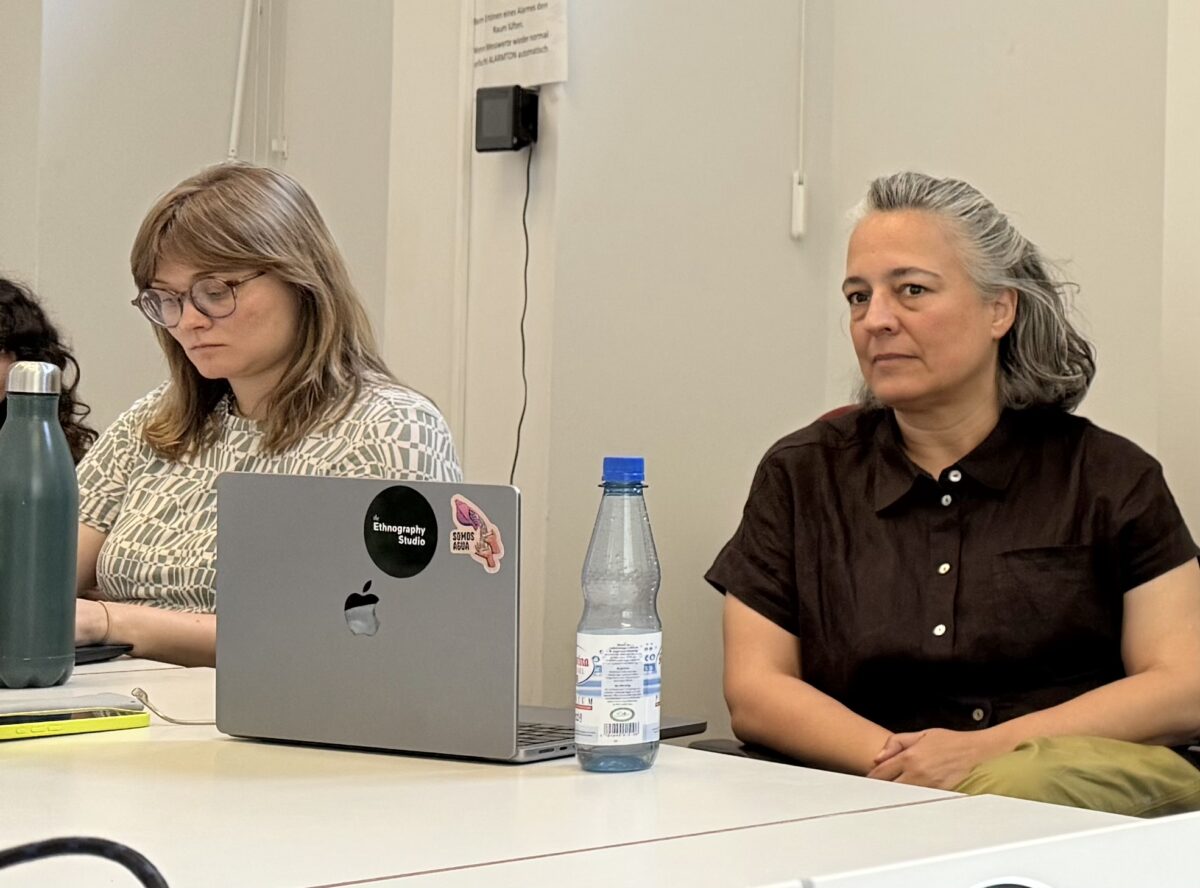
Overall, the mentoring agreement greatly supported our dissertation projects and gave us the opportunity to start building our own scientific community relations. We are more than certain that this cooperation will persist in the future and owe many thanks to Andrea Ballestero for her commitment and the RTG for providing the institutional frame and the resources necessary for such fruitful academic exchange.
Authors
Catharina Dietrich and Janine Hagemeister

